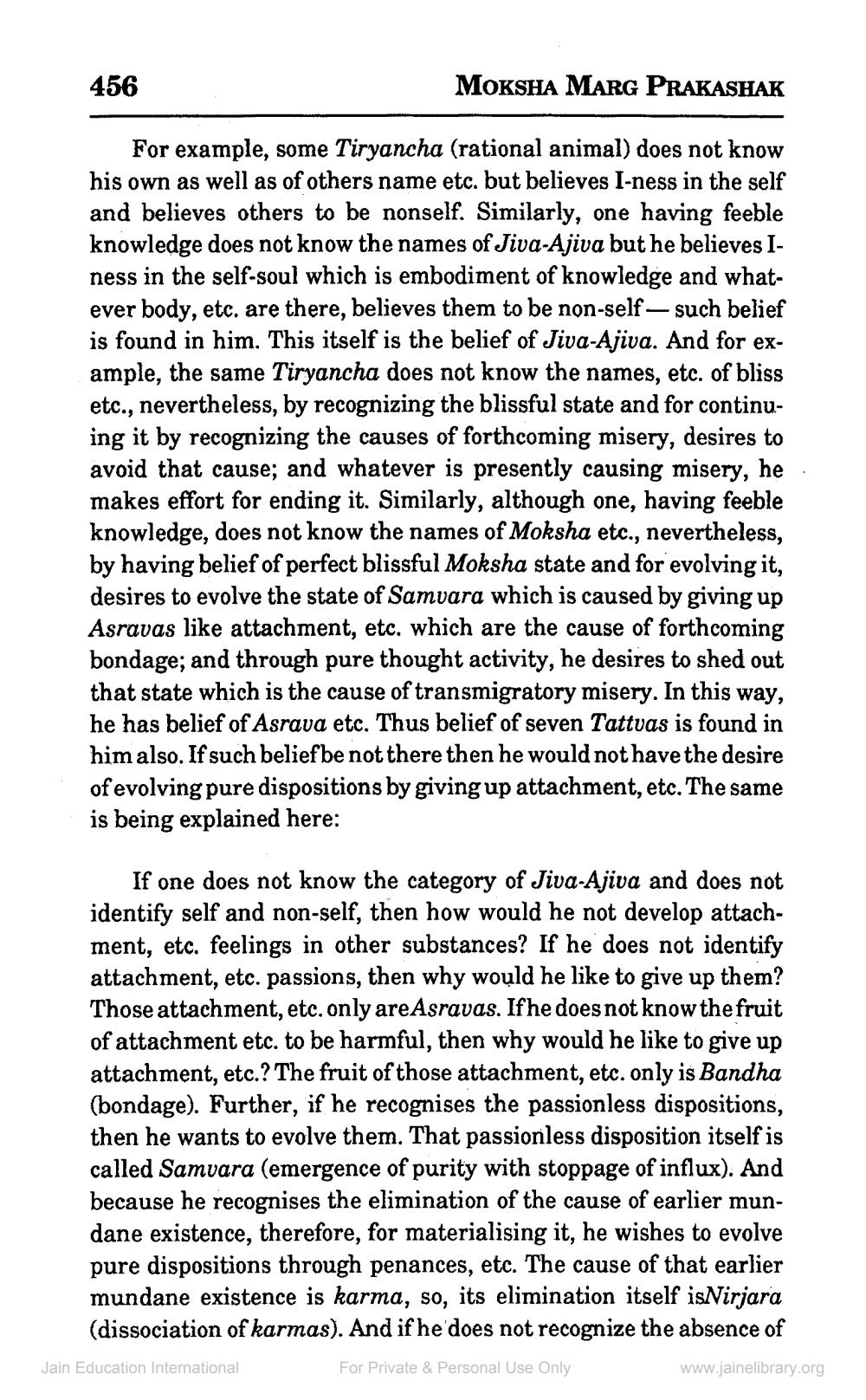________________
456
MOKSHA MARG PRAKASHAK
For example, some Tiryancha (rational animal) does not know his own as well as of others name etc. but believes I-ness in the self and believes others to be nonself. Similarly, one having feeble knowledge does not know the names of Jiva-Ajiva but he believes Iness in the self-soul which is embodiment of knowledge and whatever body, etc. are there, believes them to be non-self — such belief is found in him. This itself is the belief of Jiva-Ajiva. And for example, the same Tiryancha does not know the names, etc. of bliss etc., nevertheless, by recognizing the blissful state and for continuing it by recognizing the causes of forthcoming misery, desires to avoid that cause; and whatever is presently causing misery, he makes effort for ending it. Similarly, although one, having feeble knowledge, does not know the names of Moksha etc., nevertheless, by having belief of perfect blissful Moksha state and for evolving it, desires to evolve the state of Samvara which is caused by giving up Asravas like attachment, etc. which are the cause of forthcoming bondage; and through pure thought activity, he desires to shed out that state which is the cause of transmigratory misery. In this way, he has belief of Asrava etc. Thus belief of seven Tattvas is found in him also. If such belief be not there then he would not have the desire of evolving pure dispositions by giving up attachment, etc. The same is being explained here:
If one does not know the category of Jiva-Ajiva and does not identify self and non-self, then how would he not develop attachment, etc. feelings in other substances? If he does not identify attachment, etc. passions, then why would he like to give up them? Those attachment, etc. only are Asravas. If he does not know the fruit of attachment etc. to be harmful, then why would he like to give up attachment, etc.? The fruit of those attachment, etc. only is Bandha (bondage). Further, if he recognises the passionless dispositions, then he wants to evolve them. That passionless disposition itself is called Samvara (emergence of purity with stoppage of influx). And because he recognises the elimination of the cause of earlier mundane existence, therefore, for materialising it, he wishes to evolve pure dispositions through penances, etc. The cause of that earlier mundane existence is karma, so, its elimination itself isNirjara
(dissociation of karmas). And if he does not recognize the absence of Jain Education International For Private & Personal Use Only
www.jainelibrary.org




